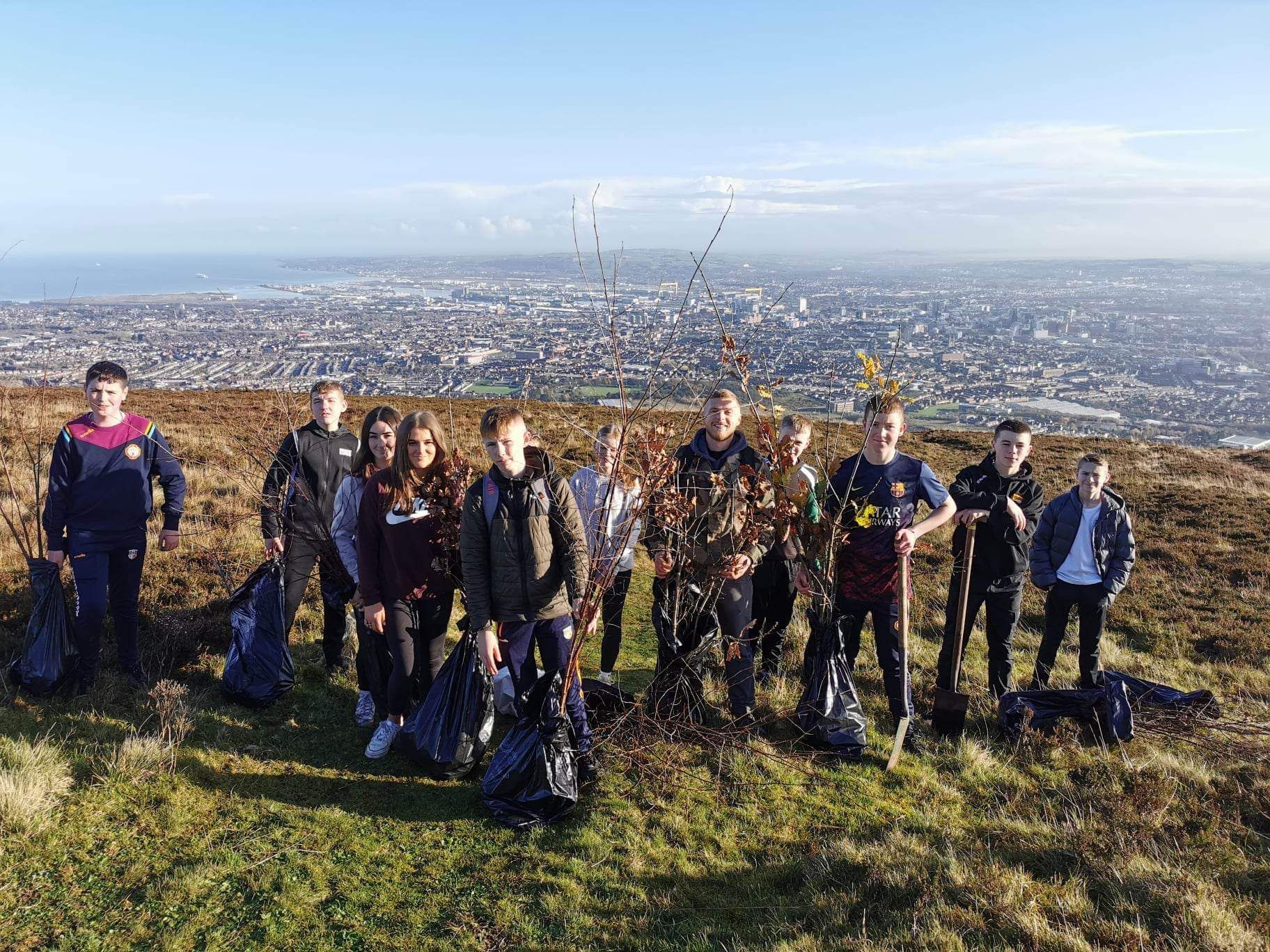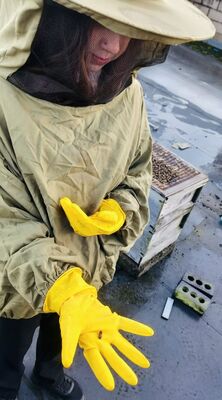FUTURE generations of local people will thank Aaron Kelly every day – and that’s not something you can say about many people. The work the 25-year-old has done and continues to do on our mountains is nothing short of phenomenal. This week he was leading a class from Coláiste Feirste in planting native trees on the bald, windswept slopes of Black Mountain, trees that will take hundreds of years to fully mature. What a legacy to leave.
Aaron is determined to bridge the centuries-long gap of a living Irish forest ecosystem. He knows the importance of a native forest, the tiny scrapes we have left on the edge of a river or an incline too steep to farm are the last refuges of some of our most precious wildlife. Losing a species is a tragedy beyond measure and something we should all be ashamed of and be continually reminded of. But instead the human mind works in a completely different way: we simply move on, behaving as if that species never existed at all. Today, the very thought that eagles should glide over Belfast and nest on our hills is, as they say, for the birds. In recent centuries we lost the wolf and the wildcat, amongst others, and the pine marten was all but considered a goner. But incredibly, Aaron discovered that the cat crainn was living on the slopes of the hills that hug west Belfast.
Dúlra spent an hour with Aaron on the hills this week. And after a long dander through the glades and ditches, we caught our breath for a while, looking over the wide expanse of the city stretched out below for as far as the eye could see. “That’s what people have,” Aaron said, pointing to the city. “Surely we can leave this wee bit to nature.” It’s a great point. Irish nature has been squeezed like a tube of toothpaste. If a penny can be extracted from the land, nothing will stand in our way. And even if we leave a piece of greenery, it’s something we still want to control, to cut and cultivate so we can enjoy it ourselves.
But Aaron has a higher calling. And that’s why he took away a prestigious Aisling Award last week. His Black Mountain Wildlife and Rewilding Project isn’t about tinkering around the edges of a natural world that’s on life-support. It’s about pumping oxygen back into a living organism that is gasping for air. Rewilding is about turning back the clock to a time when we respected nature and lived in harmony with it in the knowledge that, without it, we too are doomed. It’s about coexisting in a world that is altogether better. Aaron has the vision and he has the drive.
He’s as native to those hills as the Black Mountain pine marten itself. His vision is so powerful that he can energise small armies of people to take to the hills to help him. And there’s no limit to his ambition. “I want to see eagles back on Black Mountain,” he told Dúlra. “Two hundred years ago there were here – why not again?” Why not indeed?
• We don’t give starlings a second thought, but something happened this week which, for Dúlra, puts them in a whole new light. A relative in Glengormley heard a racket in her roofspace and thought mice must have somehow found a way in. The noise would start first thing in the morning, waking the family up, and went on for most of the day. After five days, she finally plucked up the courage to go up there, but discovered that it wasn’t mice at all, but a starling flying around the attic.
Dúlra got the inevitable call and it was clear that somehow the starling had managed to get into the attic under a slate where it had been nesting in the summer. But it couldn't find its way out. Considering that they nest in cavities, it must be a constant danger that they get trapped, like this bird. Incredibly, it had gone with no water or food for five days. Dúlra thought the best plan of action would be to try to catch the bird in a bedsheet, and carry it to freedom outside. Surely, it would be knackered after being starved and therefore easy to catch.
Two of us went up, and spent half an hour chasing the clearly terrified bird from one end of the attic to the other. And each time it managed to avoid the bedsheet. It was only when we had given up and gone back downstairs to devise another plan that it broke free itself, following us down through the loft door and into a bedroom. From there, it was just a simple matter of opening a window and the bird raced out into the cool Glengormley air.
Any other species of bird would have perished. This bird’s strength and dogged determination are what makes the starling so unique – and makes it a winner in our changing world. While most other birds are in decline, the starling has climbed to the top of the population charts, with 310 million of them worldwide. But surely none of them are as lucky as the Glengormley starling.
• If you’ve seen or photographed anything interesting, or have any nature questions, you can text Dúlra on 07801 414804.







